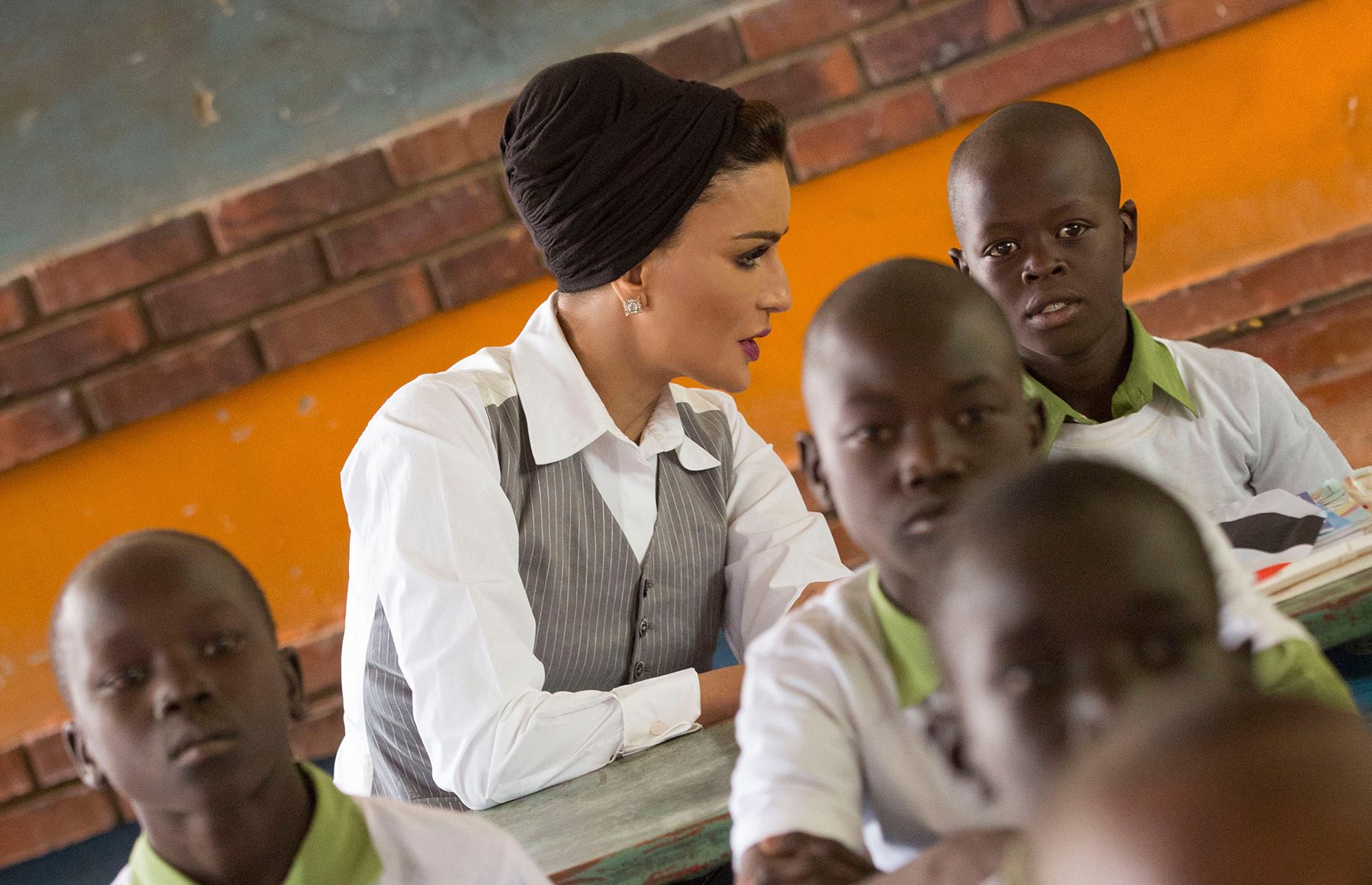According to the International Rescue Committee, the war internally displaced 9.6 million people whereas figures by the United Nations say an estimated 7.3 million people have been internally displaced.
Sheikha Moza bint Nasser, Chairperson of Qatar Foundation, has highlighted Sudan’s worsening educational crisis amid the country’s ongoing deadly conflict.
“Since the war broke out in Sudan, children have been out of school. 90% of the 19 million children in Sudan have no access to education. Sudan is one of the worst education crises in the world. Classes once filled with children are now shelters, military barracks, or utterly destroyed,” the Qatari royal said in a social media post on Monday.
Sheikha Moza, the mother of Qatar’s Amir Sheikh Tamim bin Hamad Al-Thani, is an advocate for education, spearheading social and educational reforms in Qatar and globally.
She founded the Education Above All Foundation in 2012, which has since provided a vital lifeline for students forced out of their classrooms globally due to crises and conflict.
In championing the right to education, Sheikha Moza led an initiative at the United Nations in 2020 in order to mobilise international support to ensure accountability for attacks on education.
The Qatari efforts culminated in the recognition of September 9 as the International Day to Protect Education from Attack.
Sudan’s worsening crisis
The war in Sudan erupted between Rapid Support Forces (RSF), commanded by Mohammed Hamdan Daglo, widely known as Hemedti, and Sudan’s army, led by Abdel Fattah Al Burhan last year following a period of simmering tensions.
The war in Sudan continued despite numerous diplomatic efforts that attempted to halt it, including a joint U.S.-Saudi Arabia initiative.
According to the International Rescue Committee (IRC), the war internally displaced 9.6 million people whereas figures by the United Nations estimate it at 7.3 million.
Regardless, Sudan stands as the largest internal displacement crisis in the world, according to the UN.
More than two million people have fled to neighbouring countries since the start of the war, including Chad, Egypt, Uganda and Ethiopia.
The total death toll remains disputed, though conservative estimates by the IRC say the war has killed at least 15,500 people.
The war has forced at least 10,400 schools to shut down, leaving an estimated 19 million children without education.
Alarming rates of food insecurity levels in Sudan have been on the rise, with 18 million people, or 37 percent of the population, suffering from acute levels of food insecurity. Many families would have to go days without food due to the crisis in the war-stricken country.
More than 700,000 Sudanese children are also suffering from severe malnutrition.
Meanwhile, on Monday, Doctors Without Borders (MSF) published an updated report on the dangerous situation in Sudan, from “killings, torture and sexual violence” especially in Darfur.
Titled “A war on people – The human cost of conflict and violence in Sudan,” the detailed report outlined the horrific situation on the ground.
MSF surveyed 135 survivors of sexual violence that received treatment between July and December 2023 in refugee camps in Chad. The survey found “90 per cent were abused by an armed perpetrator.”
The health sector is also struggling to respond to patients, especially with medical organisations being blocked from providing life-saving assistance.
“The violence of the warring parties is compounded by obstructions,” Vickie Hawkins, MSF General Director, said in the report, calling on the parties “to stop this senseless war on people by immediately ceasing attacks.”







